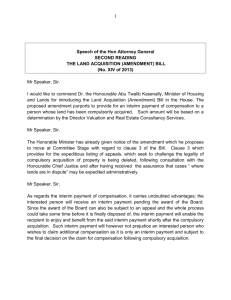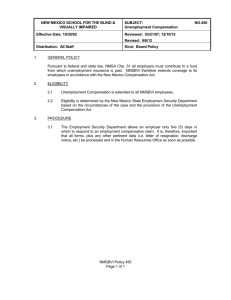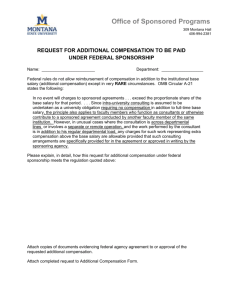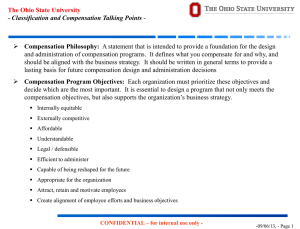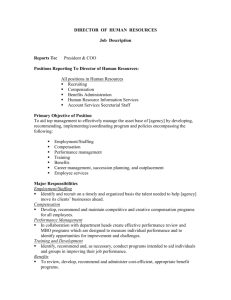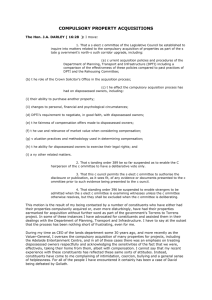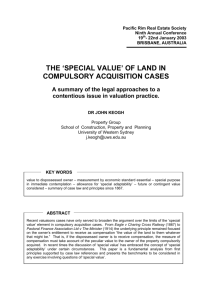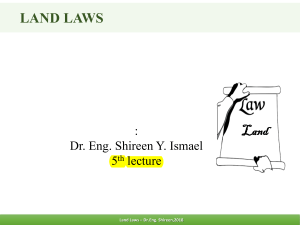Attached file
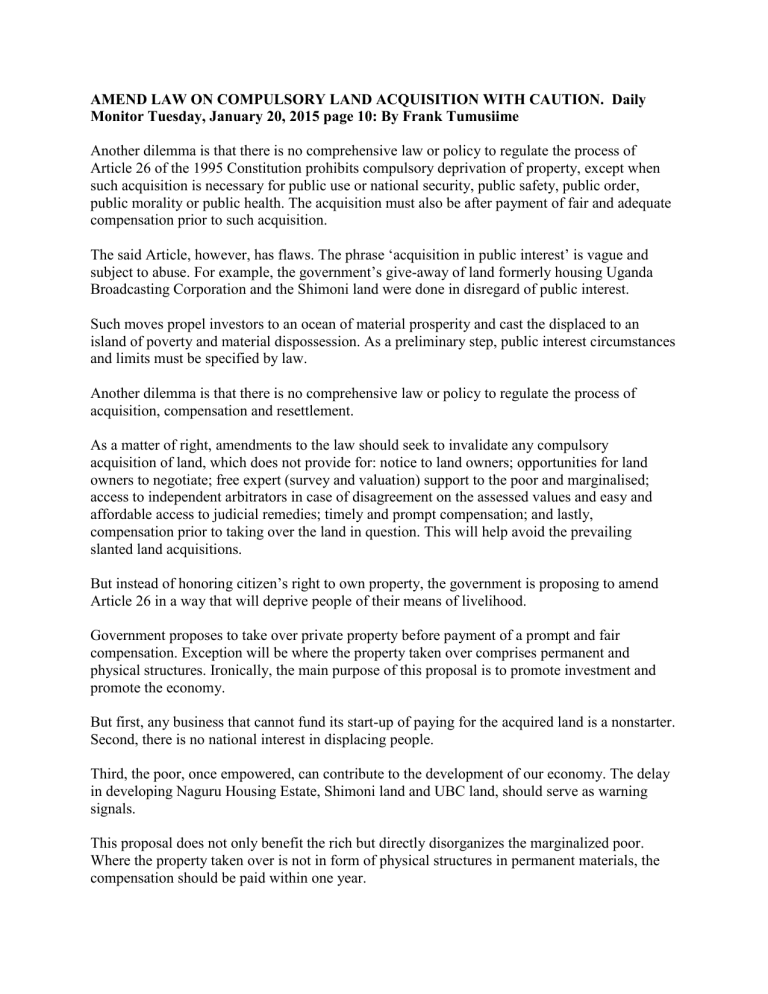
AMEND LAW ON COMPULSORY LAND ACQUISITION WITH CAUTION. Daily
Monitor Tuesday, January 20, 2015 page 10: By Frank Tumusiime
Another dilemma is that there is no comprehensive law or policy to regulate the process of
Article 26 of the 1995 Constitution prohibits compulsory deprivation of property, except when such acquisition is necessary for public use or national security, public safety, public order, public morality or public health. The acquisition must also be after payment of fair and adequate compensation prior to such acquisition.
The said Article, however, has flaws. The phrase ‘acquisition in public interest’ is vague and subject to abuse. For example, the government’s give-away of land formerly housing Uganda
Broadcasting Corporation and the Shimoni land were done in disregard of public interest.
Such moves propel investors to an ocean of material prosperity and cast the displaced to an island of poverty and material dispossession. As a preliminary step, public interest circumstances and limits must be specified by law.
Another dilemma is that there is no comprehensive law or policy to regulate the process of acquisition, compensation and resettlement.
As a matter of right, amendments to the law should seek to invalidate any compulsory acquisition of land, which does not provide for: notice to land owners; opportunities for land owners to negotiate; free expert (survey and valuation) support to the poor and marginalised; access to independent arbitrators in case of disagreement on the assessed values and easy and affordable access to judicial remedies; timely and prompt compensation; and lastly, compensation prior to taking over the land in question. This will help avoid the prevailing slanted land acquisitions.
But instead of honoring citizen’s right to own property, the government is proposing to amend
Article 26 in a way that will deprive people of their means of livelihood.
Government proposes to take over private property before payment of a prompt and fair compensation. Exception will be where the property taken over comprises permanent and physical structures. Ironically, the main purpose of this proposal is to promote investment and promote the economy.
But first, any business that cannot fund its start-up of paying for the acquired land is a nonstarter.
Second, there is no national interest in displacing people.
Third, the poor, once empowered, can contribute to the development of our economy. The delay in developing Naguru Housing Estate, Shimoni land and UBC land, should serve as warning signals.
This proposal does not only benefit the rich but directly disorganizes the marginalized poor.
Where the property taken over is not in form of physical structures in permanent materials, the compensation should be paid within one year.
Certainly, majority poor Ugandans will have to wait much longer without any compensation.
Moreover, currently most people affected by various infrastructure projects wait for more than five years to be compensated. The resultant landlessness and poverty will rid affected citizens of their dignity, survival and wellbeing.
Courts have already ruled that any compulsory acquisition of property must be before payment of a fair and adequate compensation.
The Supreme Court has recognized that the right to property is the highest right a person can have over anything to which one claims ownership, from lands and tenements, to goods and chattels; and in no way depends on another man’s courtesy.
The displacement of people should be the last resort. In most cases, the compensation won’t repurchase the lost assets. The transaction costs, the start-up costs of a new life, and lost social amenities make compensation a damage substitution exercise.
To the proponents of these amendments, let us regain our humanity. To our legislators, the practice of amending the Constitution without thorough soul-searching can cost generations lives and stability.

